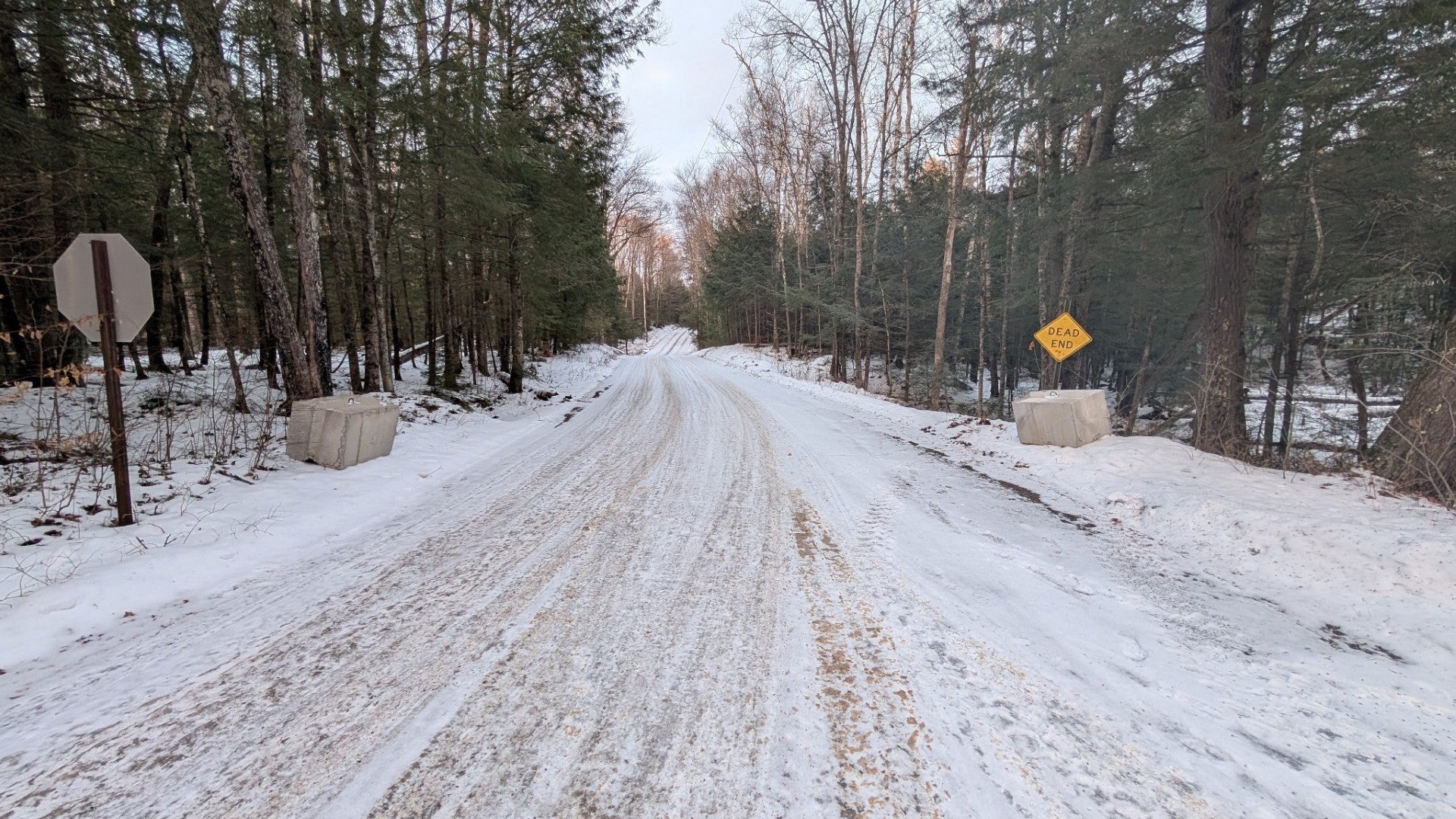In January 2023, members of the Lac du Flambeau Band of Lake Superior Chippewa put up barricades on four roads on the reservation.
To the residents who found themselves cut off from their homes, the move seemed to come out of the blue. In fact, it was the result of a decade-long dispute between the tribe, the town of Lac du Flambeau and title companies over expired easements on town roads that were never renewed.
“We try to find peaceful resolutions, but it doesn’t happen all the time,” said John Johnson, Sr., the tribe’s president. “And it feels like our voices are going unheard in our own territory, which we have sovereignty over.”
Stay informed on the latest news
Sign up for WPR’s email newsletter.
Weeks later, the tribe lifted the barricades in mid-March after reaching a temporary agreement in exchange for $60,000 from the town over 90 days. Currently, the town is making monthly payments to the tribe to ensure public access. Those payments are increasing by $2,000 each month.
More than a year has passed since the roads were blocked. While the town and tribe have said they’re willing to negotiate, they’re no closer to a resolution.
Instead, the easements and temporary road closures have become the subject of multiple lawsuits. The federal government sued the town on behalf of the tribe for trespassing. Both the town of Lac du Flambeau and homeowners have filed separate federal lawsuits against the Bureau of Indian Affairs.
The feud has sown division within the community. Nontribal residents say they’re frustrated that the dispute remains unresolved. Even some tribal elders have been critical of how tribal leadership has handled the matter. And it takes place against a backdrop of a broader movement of Native American tribes across the country exerting their sovereignty. For Johnson, the tribe is trying to preserve its lands and treaty rights.
Unless an agreement is reached, the matter could be settled in federal court. And that could mean months or even years of uncertainty for the tribe, the town and affected residents.
In the meantime, the town’s budget is under pressure from increasing payments. That came to a head Friday, when the board voted to reduce payments to the tribe beginning in July. Johnson declined to comment on the decision Monday until he meets with the tribal council.
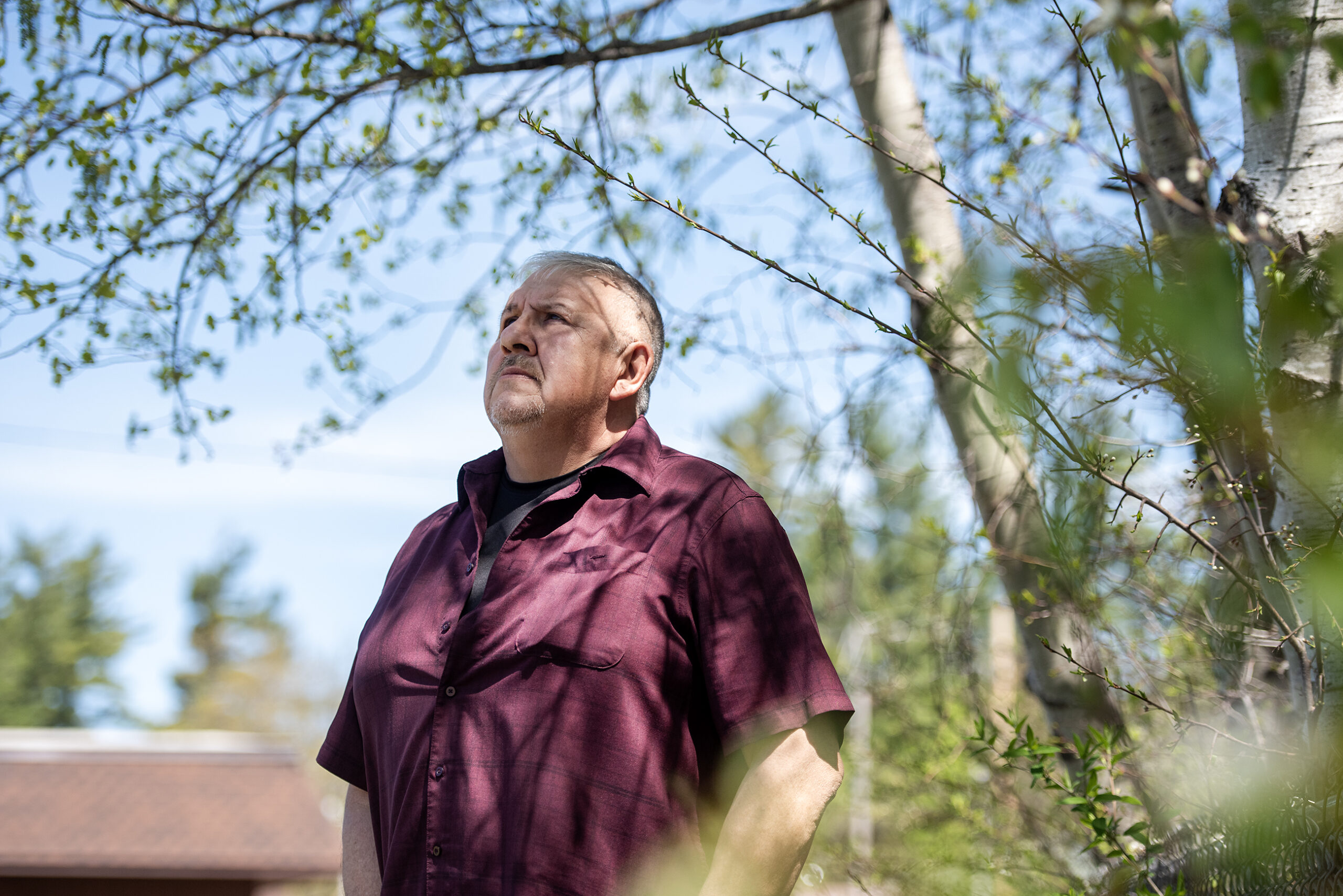
Roads dispute was a decade in the making
The Lac du Flambeau reservation encompasses around 86,600 acres of land primarily in Vilas County in northern Wisconsin. Around 3,600 people live on the reservation, but tribal leaders say they have 4,300 members. The tribe’s lands encompass 260 lakes, 65 miles of streams, 24,000 wetlands and towering conifer forests.
The tribe first settled the area in 1745 after Chief Keeshkemun led the Band to the area. That same year, the tribe faced its last battle with the Sioux on Strawberry Island. French traders dubbed the tribe Lac du Flambeau, or Lake of the Torches, for its practice of harvesting fish by torchlight at night.
At issue in the dispute are easements on four roads: Elsie Lake Lane, Center Sugarbush Lane, East Ross Allen Lake Lane and Annie Sunn Lane. An easement grants access to use someone else’s land.
The easements on those four roads largely expired a decade ago, according to George Thompson, the tribe’s vice president and tribal transportation director. Representatives of the tribe, town and title companies met at various times over the years to discuss valid rights-of-way or ownership of roads.
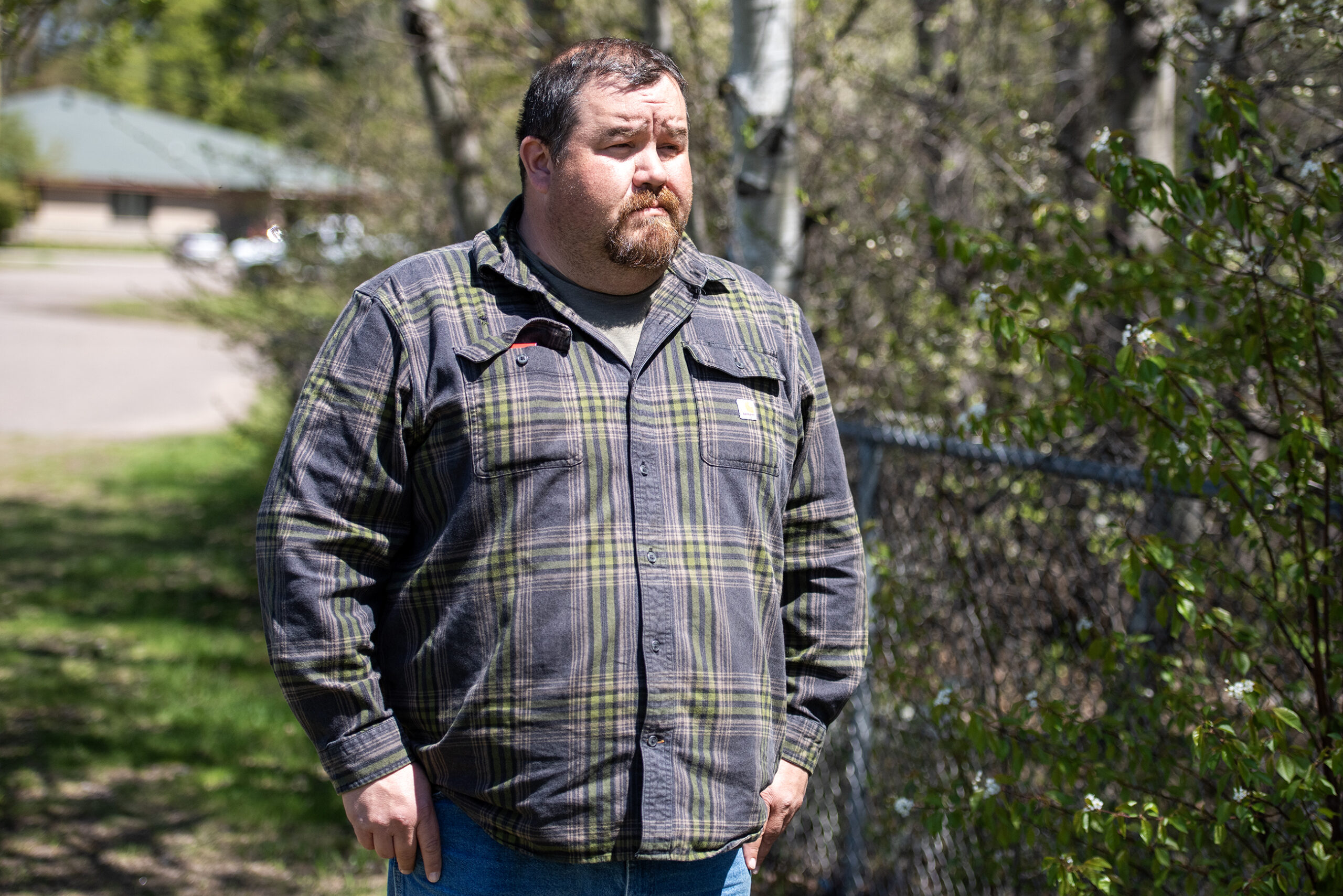
Tribal officials say the town asked for easements that would provide access indefinitely on the four roads, which the tribe doesn’t offer even to its own members. Thompson said the town hasn’t always respected cultural resources or graves that are either underneath or nearby roads, citing that as one reason why the tribe doesn’t grant easements in perpetuity.
“It turned into a hard back-and-forth, to the point where push came to shove,” Thompson said.
Citing a lack of significant progress, the tribe notified homeowners in mid-January of last year that it might close the roads. Tribal leaders say they erected the barricades only after negotiations stalled.
“We have no problem sitting at the table and trying to mediate this issue, but mediation shouldn’t (mean) the tribe having to give up more,” Thompson said.
The tribe first sought $20 million in damages for what it said was trespassing by the town. Now tribal leaders are asking for roughly half that amount. Moving forward, the tribe wants to grant annual leases in exchange for a fee equal to 1.5 percent of the fair market value of homes along those roads.
Some homeowners say the tribe’s demands for compensation are unreasonable, pointing to appraisals that show the easements are worth less than $80,000. Tribal leaders say those appraisals don’t consider past damages and legal expenses tied to the town’s unauthorized use of its lands.
In a wide-ranging interview with WPR, tribal officials say they’ve been hesitant to speak about the dispute amid ongoing legal challenges and intense scrutiny, saying they’ve been painted as villains for exerting their sovereignty.
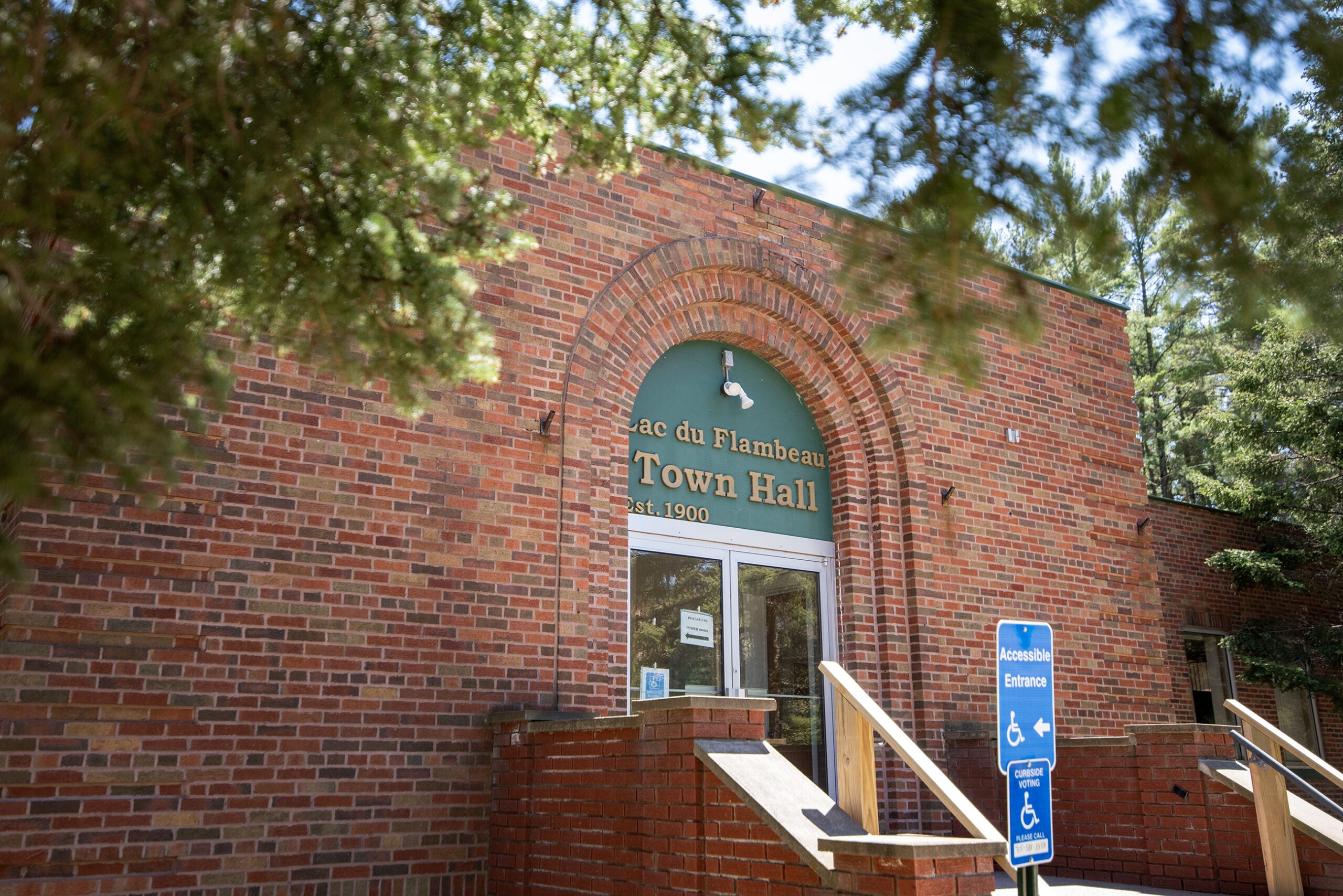
Town argues roads were required to remain open
In the lawsuit it filed last summer against the Bureau of Indian Affairs, the town of Lac du Flambeau argued that it is at least partial owner of the four roads. As part of their argument, the town pointed to their longtime inclusion on a national list of public roads providing access to tribal lands that were required by law to remain open for public use. The BIA has since removed them from that list at the tribe’s request.
The town has also pointed to a 2007 agreement between the town, tribe and federal agency that said roads listed “will continue to be owned by the town and opened to the public for travel.” The document includes some roads that were blocked by the tribe.
Thompson said the agreement was only good for one year, saying the town refused to renew it. At a town meeting in February 2023, town supervisor Bob Hanson also said it was his understanding that the deal was withdrawn by a previous town board.
The town’s attorneys also point to a separate correspondence in which the agency recognized concerns among town officials about town roads included on its national inventory, saying “the LDF Band cannot alter or maintain roads owned by LDF Town without written consent.”
Neither Town Chair Matt Gaulke nor the town’s attorneys have returned requests for comment.
In a meeting on Friday, Town Board supervisor Bob Hanson said that the town previously believed title companies were taking care of the expired easements.
“And they did not,” Hanson said. “I’m including myself in this: We as a board did not follow up on that to make sure they were doing it.”
First American Title Insurance Company, one of the title companies involved in the dispute, said it has followed the Bureau’s process to help its insured homeowners buy new easements on the four roads that are partially located on the tribe’s lands. The title companies offered more than $1 million to the tribe along with $64,000 from the town, which the tribe rejected.
Hanson said he would like to see the town receive credit for payments made so far, as well as a “reasonable rate” for easements on the roads. He added the town needs to look at whether the title companies or residents should be responsible for paying for easements on the roads.
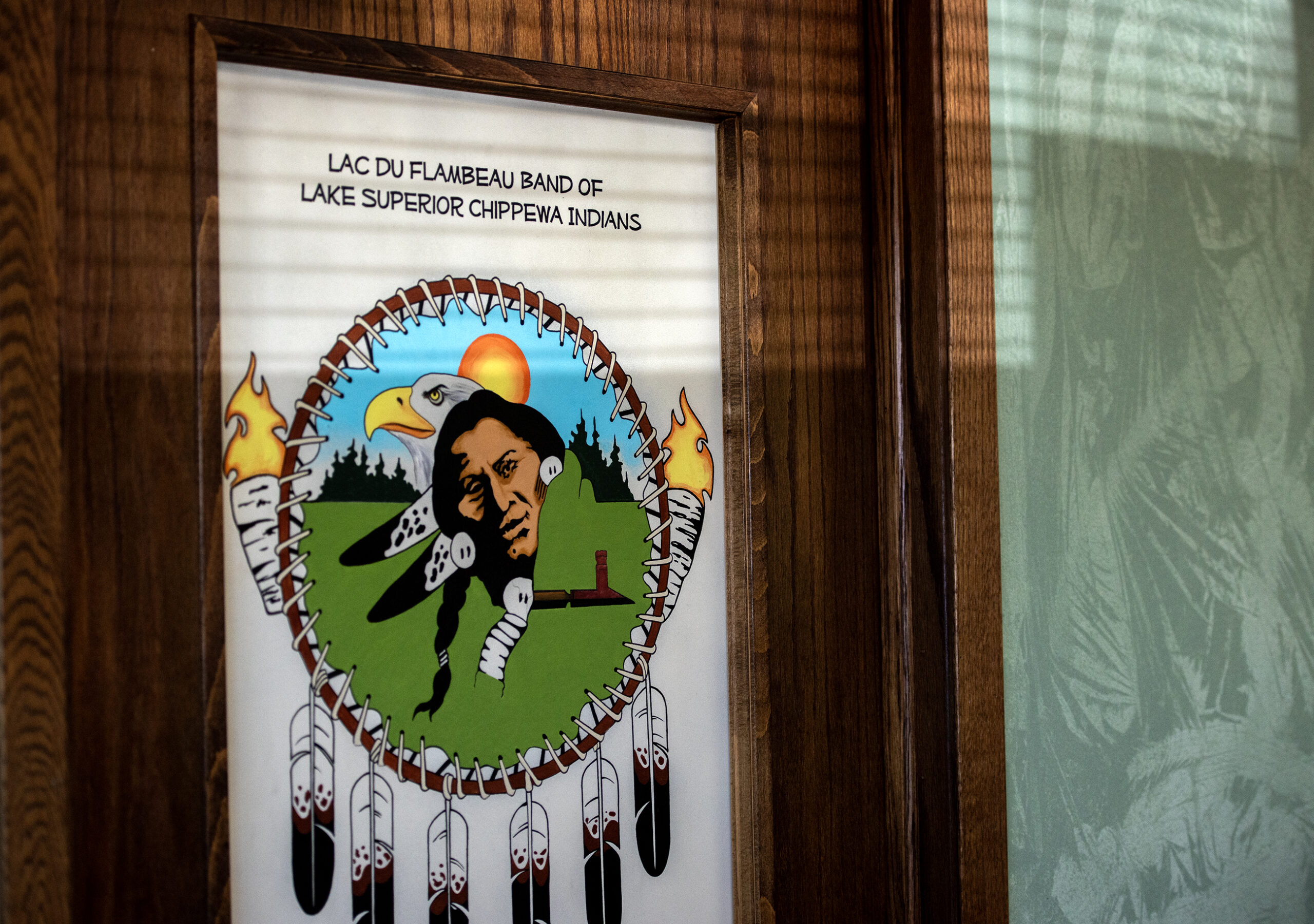
Dispute tied to broader effort among tribes to exert their sovereignty
As the Lac du Flambeau tribe seeks leases for use of its lands, Johnson said the ongoing dispute is tied to a broader effort among many tribes to exert their sovereignty.
“It’s happened in different states already,” Johnson said. “We just want what’s ours, and we want to protect it.”
Federal policy in the last 50 years has become more supportive of tribal self-determination and sovereignty, according to Monte Mills, director of the Native American Law Center at the University of Washington School of Law. Tribes in turn have more technical and legal power to assert their rights.
Mills said tribal sovereignty and treaty rights are coming to the fore as tribes raise issues with access to their lands or environmental concerns around development projects. He highlighted the Standing Rock Sioux Tribe’s fight over the Dakota Access oil pipeline that drew thousands of protesters and worldwide attention.
“These aren’t new conflicts, right? They go back hundreds of years,” Mills said. “But the fact (is) that you have now much more attention and tribes really taking the lead in some of these highly significant issues.”
However, tribes have seen mixed success in federal court. The Standing Rock Sioux Tribe sued the U.S. Army Corps of Engineers, and a federal judge said the agency didn’t adequately consider effects of a potential oil spill on the tribe’s hunting or fishing rights in its review of the Dakota Access oil pipeline project. Even so, he denied attempts to halt construction of the pipeline, which began shipping oil in 2017.
In 2019, a U.S. Supreme Court decision in the case McGirt v. Oklahoma was hailed as victory for tribal sovereignty when it upheld the existence of the Muscogee (Creek) Nation’s reservation over a large swath of Oklahoma. The case stemmed from a dispute about state jurisdiction over criminal prosecutions. Oklahoma claimed federal policy ended the reservation, but the court found otherwise in a 5-4 opinion written by conservative Justice Neil Gorsuch. The ruling meant the state couldn’t prosecute crimes on Indian land.
But the court narrowed that decision several years later by allowing the state to prosecute crimes against Native Americans by non-Indians.
Mills said it’s risky to bring cases involving tribal rights that may end up before the Supreme Court.
“It’s been a really challenging place, I would say, for tribal claims, and that’s largely because of this sort of stepping away from or minimizing reliance on some of those foundational doctrines like the role of treaties, the place of tribal sovereignty,” Mills said.
While that’s changed somewhat with the McGirt decision, he said it’s challenging for tribes to predict how the courts may view their rights from case to case.
Thompson said the tribe is concerned that it may lose more of its rights through litigation, saying the dispute can be resolved without further legal action.

Landowners caught in the crossfire
Dennis Pearson and his wife Rachel used to come up to their home on the Lac du Flambeau reservation during the summers, but now they live there year-round. Pearson, who is a facility manager in downtown Wausau, said his blood pressure drops any time he gets north of Highway 8 — a common line among Wisconsinites who treasure their Northwoods getaways.
For the Pearsons, though, the ongoing feud has upended their once peaceful surroundings.
When roads were blocked, they and other residents rode their snowmobiles across a frozen lake to a neighbor’s house, where they had parked vehicles that allowed them to get to and from their jobs. He said it was extremely stressful for his wife, but things have improved since the barricades were lifted.
“But there’s always that hovering over you,” Pearson said. “Is the town going to make the next payment?”
The town’s annual budget is almost $1.9 million. As of this month, the town will have spent roughly half a million dollars with help from title companies to ensure access on the four roads since March of last year. As payments increase every month, Pearson said the town is going to go broke. If the town can’t pay, the tribe’s transportation director said they may have to consider closing the roads again.
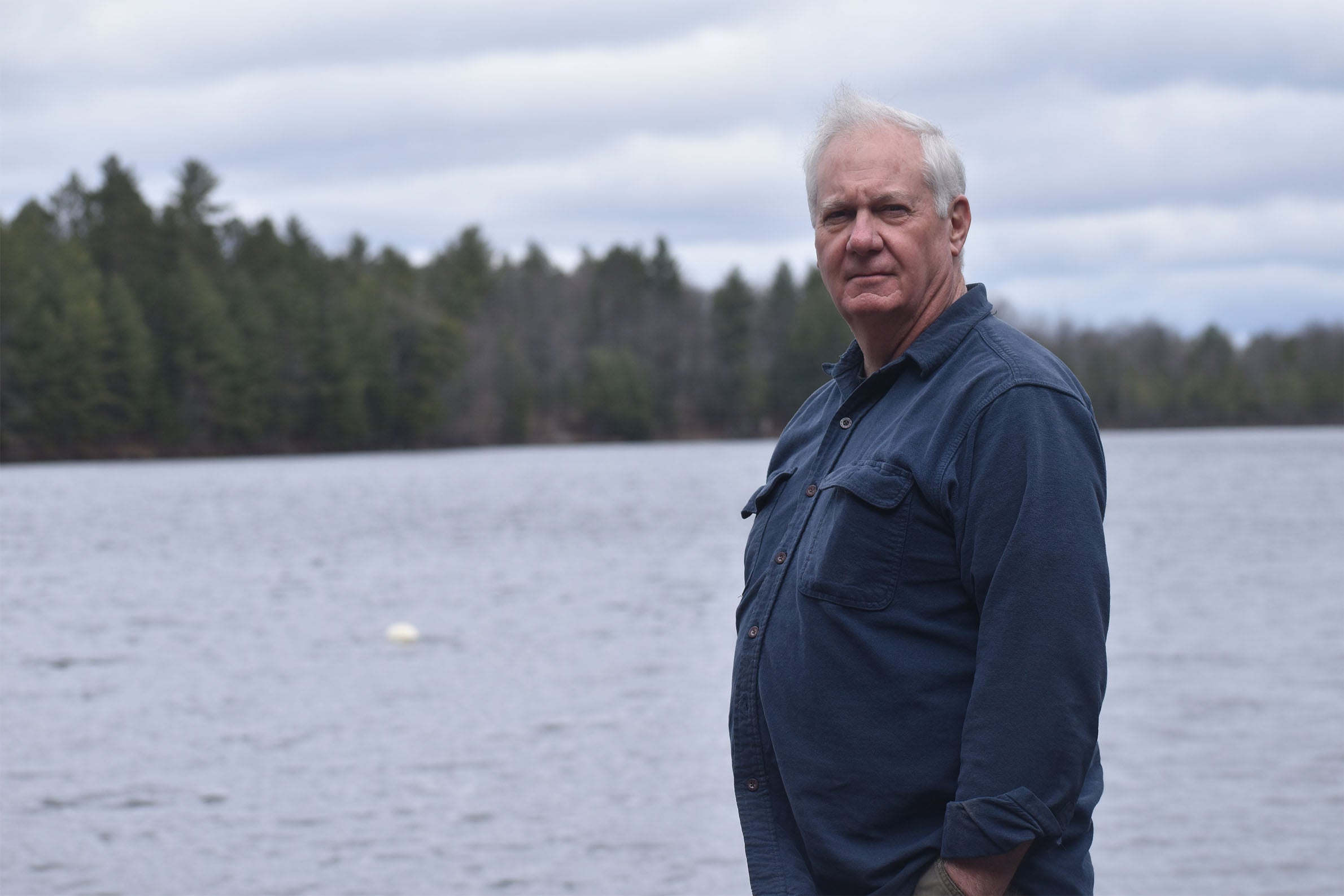
Property values plummet along affected roads
On some parts of the reservation, a gap in wealth and resources is apparent. Lakefront homes along roads involved in the easement dispute were estimated to be worth up to half a million dollars or more, while some homes on the reservation have boarded-up windows. Federal data show 20 percent of people there live in poverty — higher than the statewide average.
The road closures have already caused the value of homes on affected roads to drop 75 percent or more for residents like Pearson and Mike Hornbostel. Once worth almost a half million dollars, Hornbostel said his home now has an assessed value of $69,000. Through the barricades, Hornbostel said he thinks the tribe sought to decrease the value of people’s homes in a bid to get land back.
“I don’t think there’ll be a resolution because the tribe doesn’t want a resolution. They want us gone,” Hornbostel said.
Homeowners point to Johnson’s testimony in a recent hearing before an administrative law judge. According to a transcript of the proceedings, Johnson said the tribe’s policy is to get back all lands that aren’t held in trust for the tribe or its members.
Johnson said it’s not that they want homeowners to leave. If people want to retire or move away, he said the tribe would like to negotiate with landowners to pay the fair market value of their lands.
“That’s how we want our land back,” Johnson said. “We’re not just going to go in and take it and rob you and deny you access. That’s not what we want to do.”
Mary Possin, a former student service coordinator at University of Wisconsin-Madison, said she and her husband bought their home on Elsie Lake Lane in 2017. It was always a dream of hers to live in the area, and the home was something they worked toward their whole lives. Now, they feel trapped. Their property is nearly worthless without valid easements. Possin said she’s frustrated, but she also acknowledges historic federal policies that deprived the tribe of its lands were wrong.
“I fundamentally don’t belong here. None of the nontribal property owners belong here. That should have never happened,” Possin said. “It happened because of the United States Congress passing legislation at the turn of the (20th) century.”
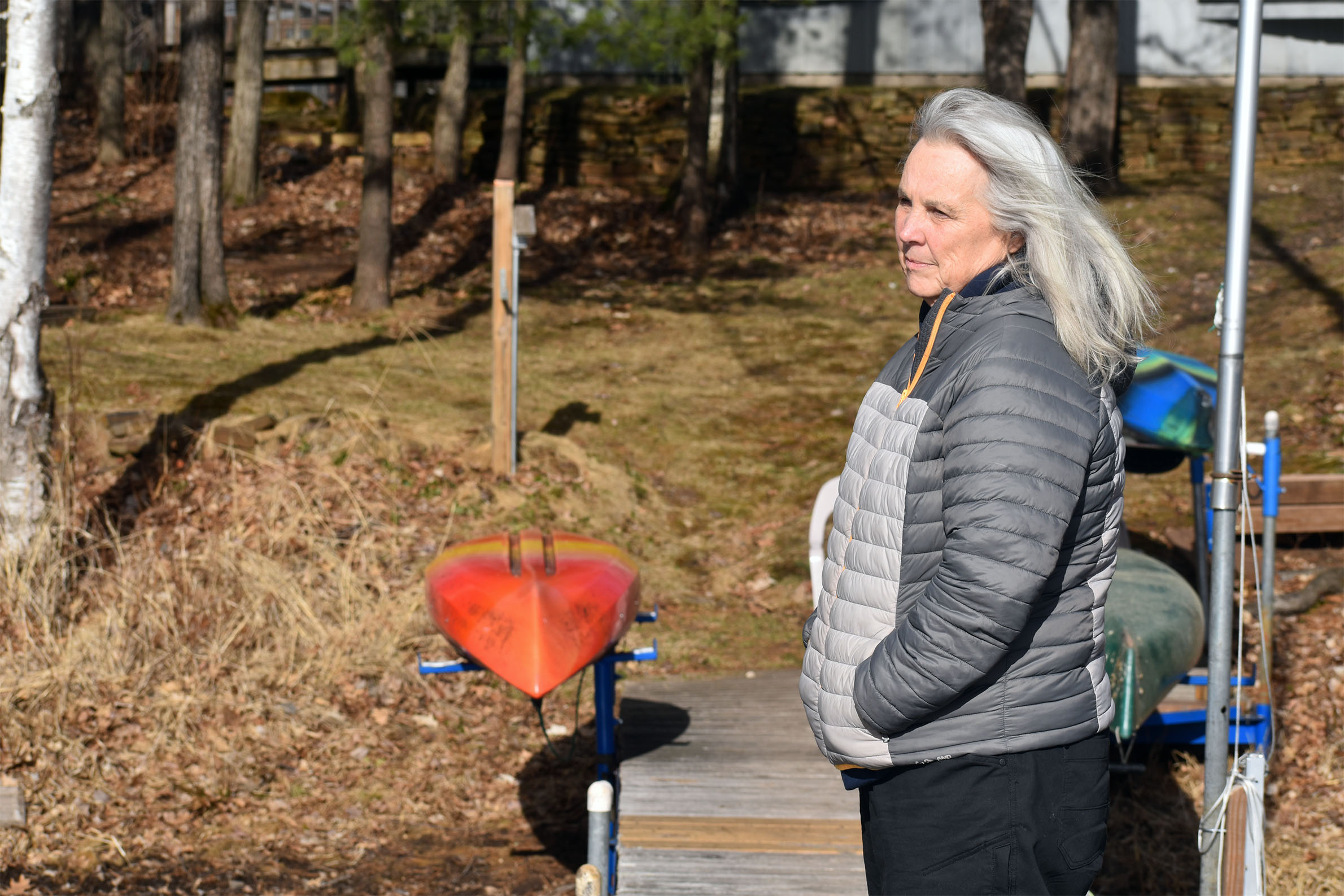
Danielle Kaeding/WPR
Historic federal policies led to loss of tribal lands
The ongoing dispute is rooted in historic federal policies that have led to the loss of tribal lands. In 1887, Congress passed the Dawes Act, breaking up reservation lands by allotting them to individual tribal members. When it was passed, tribes held 138 million acres of land nationwide. With lands no longer held in trust, local and state governments could tax them. The costs often forced individual tribal members off their lands. By 1934, tribes had lost two-thirds of their land.
Jessie Peterson, the tribe’s program manager of its Land Management Department, said land owned by individuals was later divided among surviving relatives. Over time, the land was split among so many owners that the tribe lost a majority interest in those properties.
“That created what we have now — it is a checkerboard reservation,” Peterson said.
In the 1960s, nontribal members gained easements to access tribal lands as developers and town officials sought to create a tourism economy, according to the tribe’s transportation director. Peterson said some requests for rights-of-way bypassed the tribe, excluding them from decisions altogether.
At the time, the Indian Right-of-Way Act gave the Bureau of Indian Affairs broad authority to grant access without consent of individual landowners if they couldn’t be reached or heirs to parcels were unknown. During that time, the agency granted 50-year easements for roads at the heart of the dispute. Tribal officials say they’ve faced challenges obtaining records from the agency, which has lost documents over time.
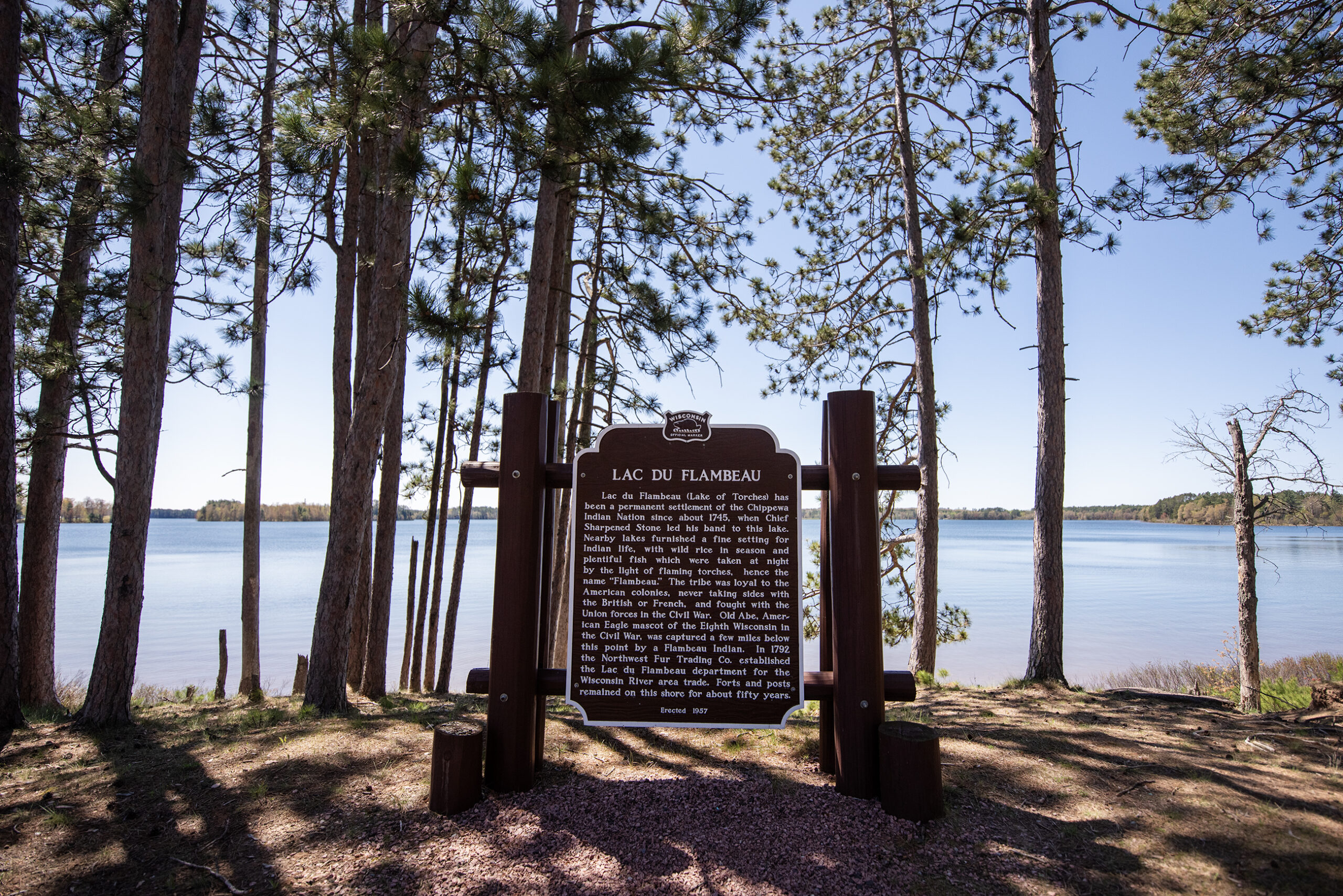
Bridget Hubing, an attorney hired by title companies to represent landowners, has said that easements granted on the four roads were never recorded. During a public meeting last year, she said they were found on maps of the roads in the basement of a surveyor’s office.
Mills noted a Colorado case where the Southern Ute Indian Tribe reached a global road agreement with county officials, granting the county and residents the right to access tribal lands on roads maintained by the county. Under that deal, the county could regulate traffic and speed limits while the tribe maintained control of its lands.
“There may be opportunities for that type of negotiation and agreement that really takes into account those broader sovereign interests,” Mills said. “Both of the town and the tribe and the federal government.”
Homeowner Mary Possin said Congress should offer money or land to the tribe.
“It’s up to them to legislate a solution to this, that gives people peace of mind that they’re going to be able to get to their properties…and the tribe is going to be compensated for what’s going on here on this reservation,” Possin said.
Thompson, the tribe’s vice chair, said they would consider accepting land to offset the cost of damages from the town’s trespass on tribal lands.
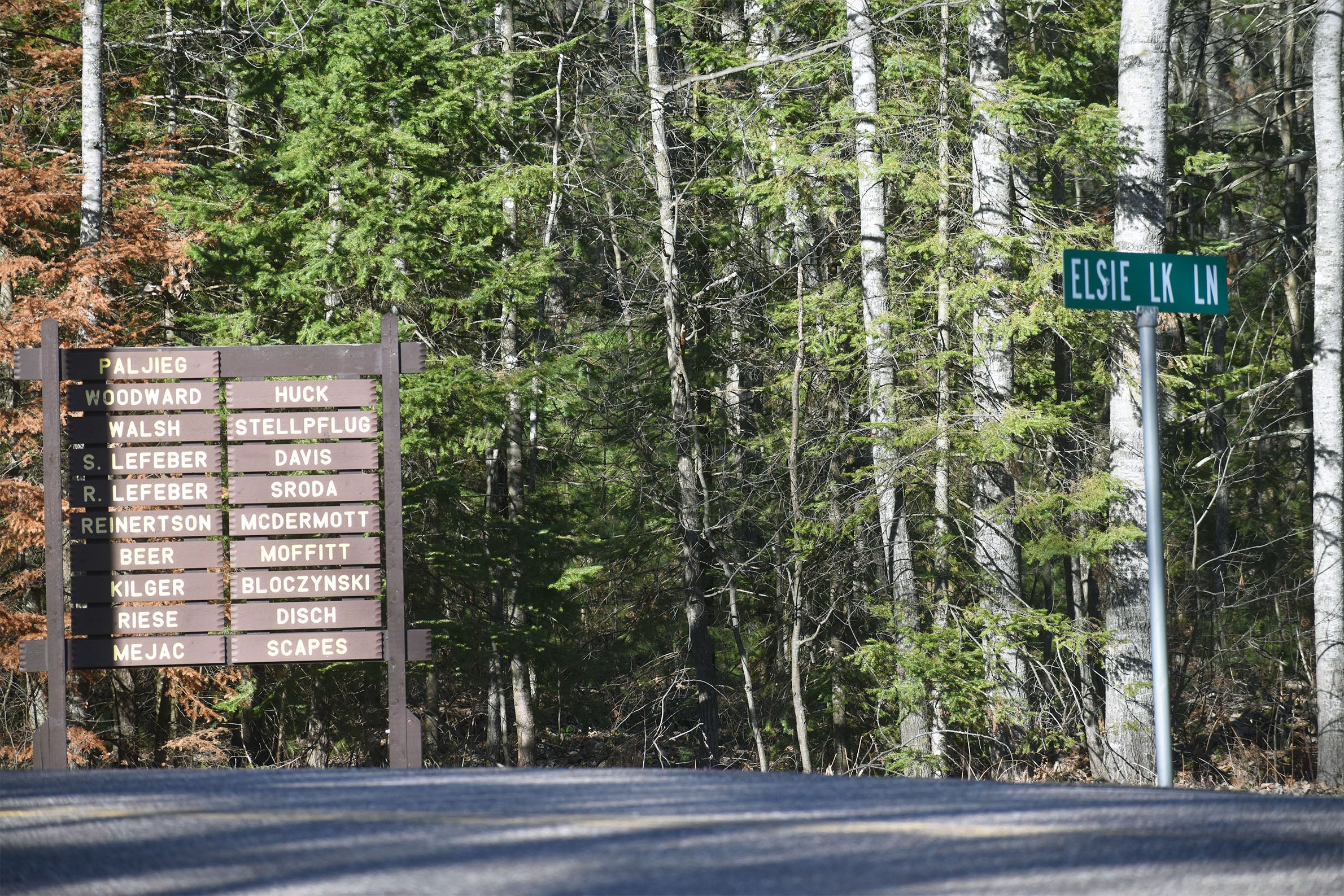
Dispute over roads has sowed division within the community
Tom Maulson Sr., the tribe’s former president, said he supports the tribal council’s decision to close the roads last year because a resolution is needed in the ongoing dispute. Even so, he criticized tribal leadership for communicating through letters rather than talking with town leaders to resolve the feud, and he doesn’t want to see his nontribal friends leave or bought out of their homes.
“People got to start to talk,” Maulson said. “If we don’t talk, then we’re not going to get any resolution whatsoever.”
Johnson said his door is always open to the town’s chair, but he said local officials aren’t communicating with the tribe due to ongoing litigation. He noted Gov. Tony Evers and Sen. Tammy Baldwin sent a letter in February, urging mediation to reach a resolution. Johnson said there’s nothing to mediate if town leaders won’t tell the tribe what they want.
In the town meeting on Friday, officials said that’s likely to change. They say the town can’t afford to pay indefinitely for access to roads. And if the town can’t pay its bills, it wouldn’t be able to file for bankruptcy because state law doesn’t allow it. The Wisconsin Legislature would have to authorize that move. Ultimately, the Town Board voted 2-1 to reduce monthly payments beginning in July due to a lack of funds.
Gloria Cobb, a Town Board supervisor and tribal member, said in the public meeting that the town is still showing good faith by paying some amount.
“And I’m looking forward to opening up the lines of communication with the tribe,” Cobb said.
But the dispute has taken a toll on the community, causing frustration, anger or resentment among residents.
While he used to spend a ton of time in the community, Dennis Pearson said he avoids the grocery store and casino, only passing through town on his way to and from work.
“There’s a lot of bad blood and hard feelings out there on both sides,” Pearson said.
For Mike Hornbostel, the conflict has fueled his own racial resentment toward Native Americans.
“As I pass tribal cars with tribal license plates, there’s anger,” Hornbostel said.
He accused the tribe of “running a white man off what they believe is their land.” He said he doesn’t have relationships with tribal members anymore and keeps a rifle by his front door as he’s faced threats to his well-being on social media.
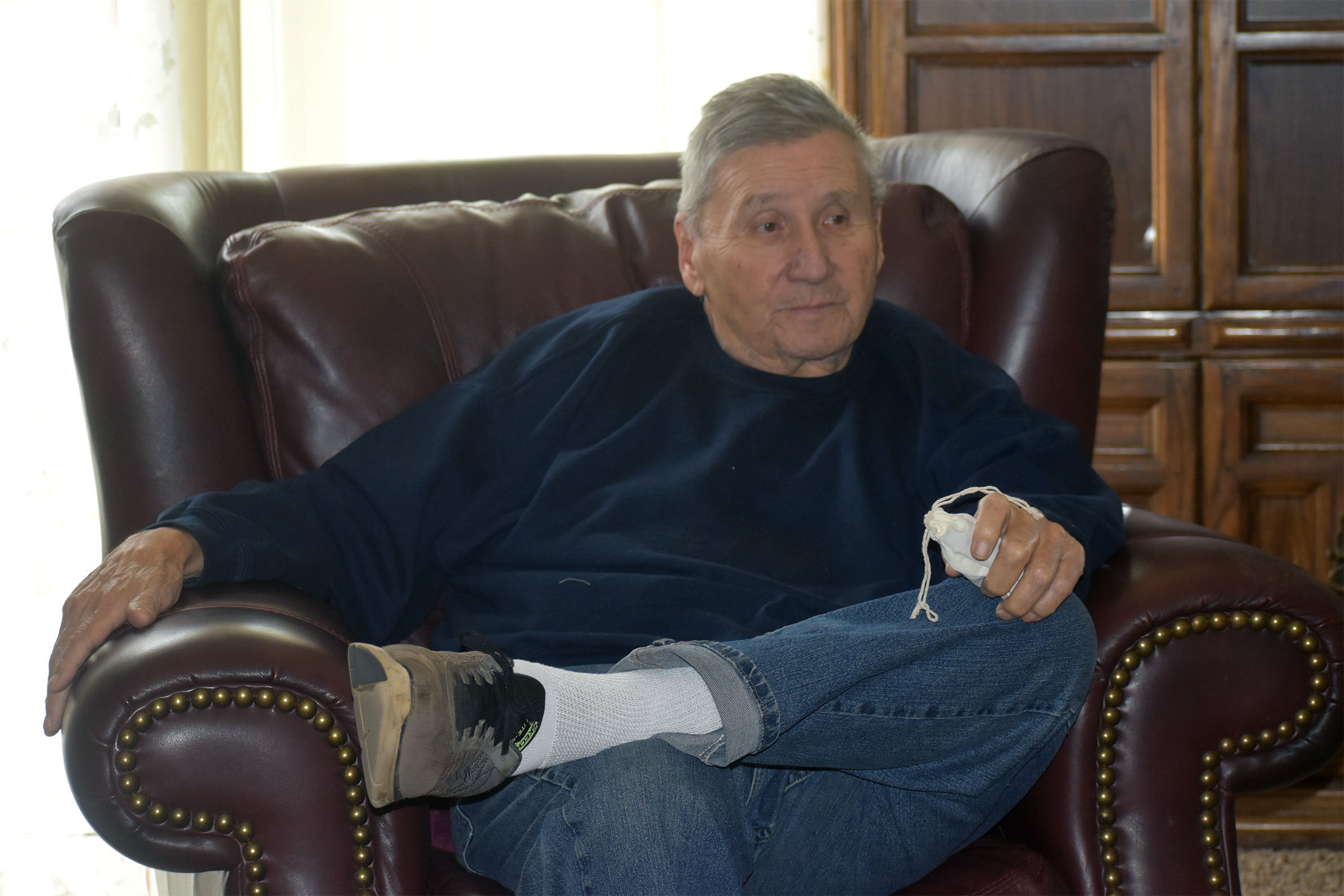
Tribal officials say the feud is affecting their ability to attract workers and buy lands. Other tribal members say it may affect their ability to do business. State lawmakers have already withheld gaming revenues from the tribe due to the dispute.
“It’s not easy to be an Indian today,” Maulson said. “It’s not easy for the white folks that are out there that have been blocked into their pieces of property to understand who we are.”
Johnson disputed that tribal leaders hate white people, noting he’s half white himself. Tribal officials say they want fairness across the board. Thompson said the tribe still works with the town roads foreman to clear roads during storms or ensure access for emergency services.
“We don’t want to see anybody hurt on this reservation. We want to see good things,” Thompson said. “We want to break these racial barricades that plague us every single day.”
As the dispute drags on, Johnson said the tribe is standing firm.
“We’re not going to be bullied for trying to protect our lands,” Johnson said. “That’s all we’ve ever wanted.”
Wisconsin Public Radio, © Copyright 2025, Board of Regents of the University of Wisconsin System and Wisconsin Educational Communications Board.

